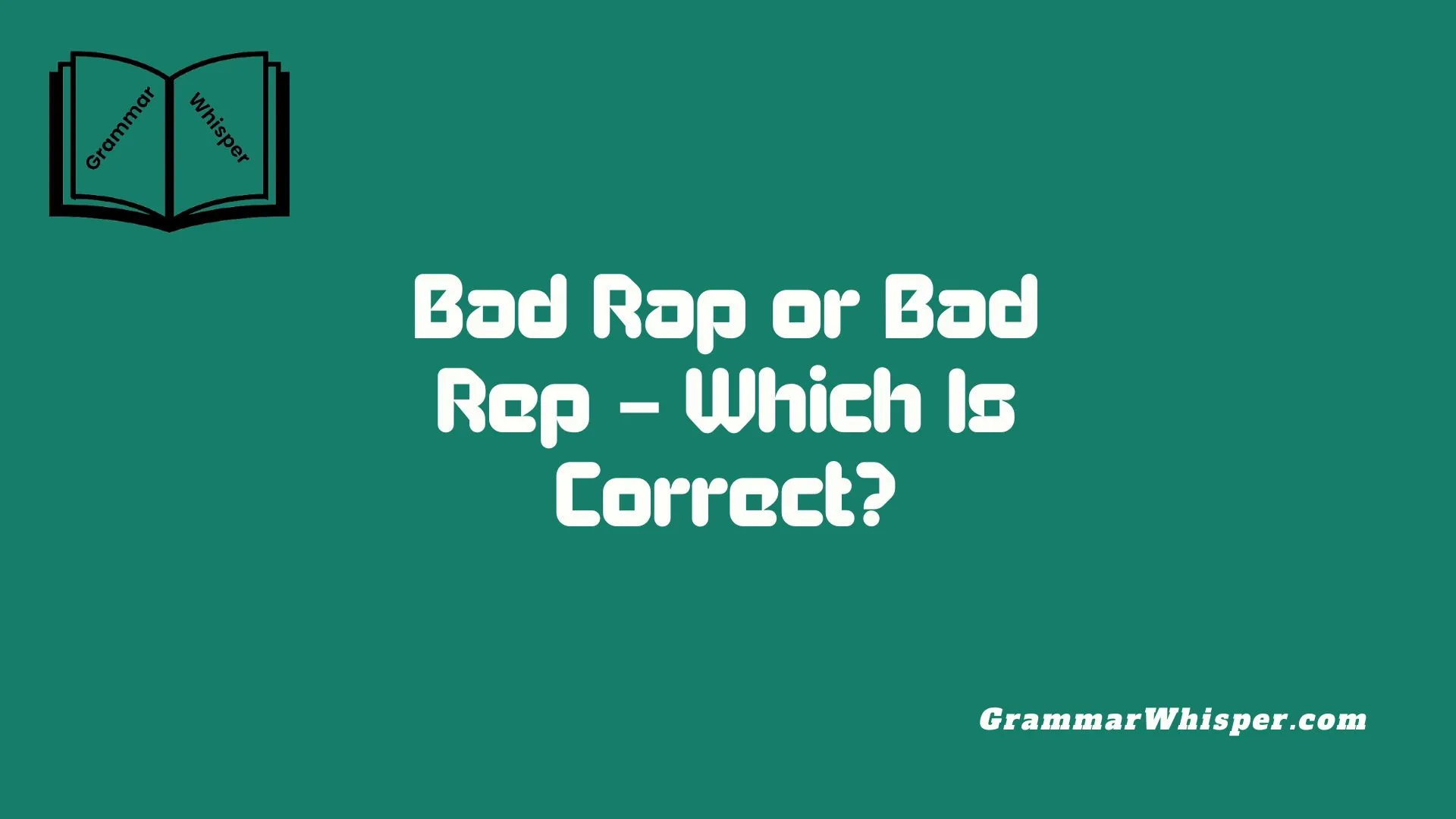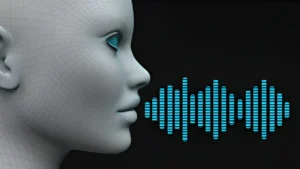In the fast-paced world of modern language, seemingly minor phrases can lead to major confusion. I noticed this while editing a quirky caption for a pop culture blog, and again during a routine professional email review for a client. The misused pair “Bad Rap or Bad Rep” keeps popping up. While they’re often interchanged, the difference genuinely matters. Historically, “bad rap” stems from legal references and street vernacular – think “rap sheet,” which alludes to a criminal record or an unfair judgment. Meanwhile, “rep” is just shorthand for reputation, which makes it easy to confuse when you’re referencing someone’s public image. Yet, “bad rap” is the correct form in most contexts. It’s a phrase you’ll hear in media, speech, and anywhere that impressions carry weight.
Whether you’re in communication, developing new skills, or aiming to elevate your writing, mastering these small differences offers a linguistic edge. Understanding the origin of expressions isn’t just for grammar nerds; it’s for anyone who values precision and clean conversation. I say this not just as an editor, but as a working writer who depends on smart memory tricks and practical tips to stay sharp. I even use the mental example of a “rap battle” vs. a “rep battle” – a silly thought, but it works. Ultimately, it’s about the cultural context of a word. Whether you’re a language expert or a curious learner, tracking these evolving shifts in usage – with help from trusted opinions and a strong guide – helps your message land the way you intend it to.
Understanding the Phrases: ‘Bad Rap’ vs. ‘Bad Rep’
So which is it: bad rap or bad rep?
Bad Rap: The Correct Phrase
The term “bad rap” refers to undeserved criticism or negative reputation. The word “rap” here is shorthand for “rap sheet” or “accusation,” dating back to its legal and criminal connotations.
“He got a bad rap for something he didn’t even do.”
Bad Rep: Informal or Misused
While “rep” is a shortened form of “reputation,” saying someone got a “bad rep” is technically incorrect in formal contexts. It’s a colloquial slip-up that caught on due to how natural it sounds.
“The company got a bad rep after the scandal” – technically incorrect but widely used.
Key Point: “Bad rap” is rooted in legal and cultural context, making it the more accurate and accepted term.
The Origin of ‘Bad Rap’: Where It Comes From
The phrase “bad rap” comes from 20th-century American slang, especially within criminal justice circles.
- “Rap” originally meant a criminal charge or accusation.
- The term “rap sheet” refers to someone’s criminal record.
- “Take the rap” means taking the blame for something.
The phrase “bad rap” evolved from these expressions to mean receiving unjust blame or being misjudged.
Example: Historical Uses
- “He caught a bad rap” in 1930s noir films
- Police reports referring to “rap sheets” for suspects
- Journalists using the term to describe false allegations
Quote:
“The defendant got a bad rap when the media twisted the facts.” – The Chicago Tribune, 1978
Why ‘Bad Rep’ Sounds Right But Isn’t (Most of the Time)
“Bad rep” isn’t entirely made up. “Rep” is indeed short for “reputation.” But using it in the context of false accusations or unfair criticism is inaccurate.
- Bad rep = someone actually has a poor reputation.
- Bad rap = someone is wrongly perceived or judged.
Colloquial Adoption
The phrase “bad rep” spread due to its phonetic closeness to “bad rap.” In casual speech, they sound nearly identical, especially with fast or regional accents.
Linguistic term: eggcorn
An eggcorn is when someone mishears or misunderstands a word or phrase, creating a new but incorrect version. “Bad rep” is an eggcorn of “bad rap.”
Key Differences: Bad Rap vs. Bad Rep
| Phrase | Definition | Correct Usage | Context |
| Bad Rap | Unfair blame, unjustified criticism | “He got a bad rap.” | Legal, media, general |
| Bad Rep | Genuinely poor reputation | “She has a bad rep.” | Informal, slang, casual |
| Misuse | Using “bad rep” when “bad rap” is intended | “He got a bad rep.” | Linguistically incorrect |
Bottom Line
Use “bad rap” when discussing unfair blame. Use “bad rep” only when referring to an actual bad reputation – preferably in informal settings.
Real-World Usage Examples
Correct Uses of “Bad Rap”
- “Brussels sprouts get a bad rap, but they’re delicious when roasted.”
- “The software got a bad rap because of early bugs.”
- “He caught a bad rap in high school that stuck with him.”
Common Misuses of “Bad Rep”
- “Tom got a bad rep for cheating, though it was a misunderstanding.” (Incorrect)
- “She earned a bad rep after the news story.” (Possibly correct if the reputation is deserved)
Tip: If it’s about false perception, choose “bad rap.”
Pop Culture References That Cemented ‘Bad Rap’
Hip-Hop and Music
- The term “rap” is widely known thanks to hip-hop culture.
- Run-D.M.C., Tupac, and Public Enemy referenced “rap sheets” and being misjudged.
Movies and TV
- The Fresh Prince of Bel-Air used the phrase “bad rap” when Will was wrongly blamed.
- In Law & Order, characters use “rap sheet” and “bad rap” interchangeably.
Literature
- In The Hate U Give by Angie Thomas, characters discuss unfair reputations tied to societal bias – a metaphorical “bad rap.”
Language Evolution: Is ‘Bad Rep’ Becoming Acceptable?
Language evolves, and that includes grammar and idioms.
Descriptivism vs. Prescriptivism
- Descriptivists say “bad rep” is OK if people use it that way.
- Prescriptivists argue that correct form and origin matter.
Linguistic Trends
- Google Books Ngram Viewer shows “bad rap” is still more common.
- Social media shows “bad rep” gaining traction among younger users.
Conclusion: “Bad rep” is becoming more accepted informally, but “bad rap” remains the correct form.
Why Getting It Right Matters in Writing & Speech
Precision in language is crucial in:
- Professional emails
- Academic writing
- Legal documents
- Media commentary
Using “bad rep” instead of “bad rap” could:
- Undermine your credibility
- Confuse your audience
- Be flagged by editors and grammar tools
Fact: Grammarly and Microsoft Word grammar tools both mark “bad rep” as an error in formal settings.
Tips to Avoid the Mix-Up
- Link “rap” to “rap sheet” – a legal term for criminal history.
- Think of “bad rap” as being “rapped” on the knuckles unfairly.
- Avoid using “rep” in formal or serious writing.
Linguistic Patterns Behind Confusable Phrases
“Bad rap” vs. “bad rep” is part of a wider phenomenon in language:
Common Eggcorns
| Correct Phrase | Mistaken Version |
| For all intents and purposes | For all intensive purposes |
| Nip it in the bud | Nip it in the butt |
| Deep-seated | Deep-seeded |
| Bad rap | Bad rep |
Why it happens:
- Phonetic similarity
- Poor language education
- Media repetition of incorrect forms
What Linguists and Dictionaries Say
Dictionary Entries
- Merriam-Webster: Defines “bad rap” as “an undeserved criticism or bad reputation.”
- Cambridge Dictionary: Lists “bad rap” under idioms for unfair judgment.
- Oxford English Dictionary: Traces “rap” to early 1900s slang for criminal charge.
Expert Quotes
“Language is democratic, but that doesn’t mean it’s always correct.” – Steven Pinker, Linguist
“Bad rap is the phrase you’re looking for when you mean someone has been unfairly judged.” – Grammar Girl (Mignon Fogarty)
Final Verdict: Use ‘Bad Rap’
Use “bad rap” when discussing:
- Unjustified criticism
- False accusations
- Misunderstood situations
Use “bad rep” only if:
- You’re referring to an actual reputation
- You’re in a casual setting
- You’re fine with informal or slang usage
Remember: You can earn a bad rep, but you get a bad rap.
Conclusion
Language is powerful. Knowing the difference between “bad rap” and “bad rep” isn’t just grammar trivia – it’s a way to express yourself with precision. Whether you’re a writer, student, marketer, or just someone who wants to communicate clearly, always reach for the right phrase.
FAQs
What does “bad rap” actually mean?
“Bad rap” refers to undeserved criticism or blame. It’s often used when someone or something is unfairly judged.
Is it ever acceptable to say “bad rep”?
Only in informal contexts when referring to someone’s actual reputation. But avoid it in writing or formal speech.
Where does the term “rap” in “bad rap” come from?
It stems from criminal justice slang, where “rap” meant a charge or accusation. The term “rap sheet” supports this.
Why do people keep confusing these two?
Because “rap” and “rep” sound similar in many dialects. It’s a common eggcorn in the English language.
How can I remember the difference easily?
Think “rap sheet” for criminal charges. If it’s about blame, it’s “bad rap.” If it’s about character, maybe “bad rep.”











